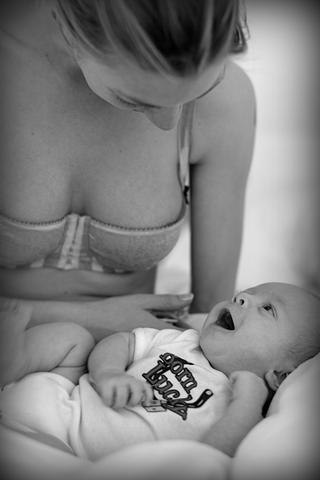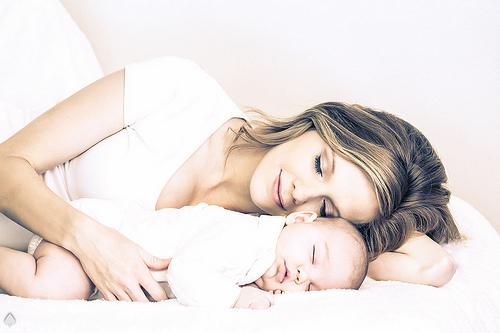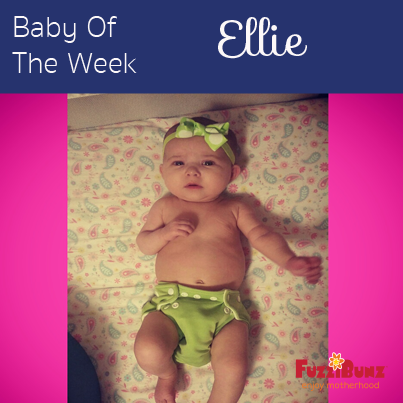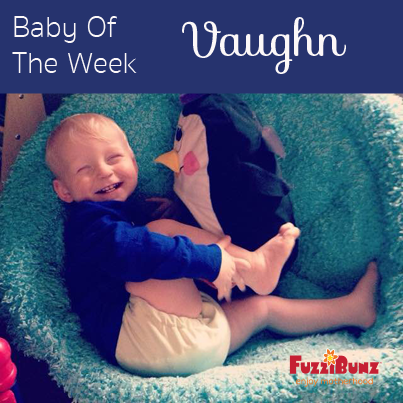Breastfeeding. It is Completely Natural, Right?
Is it me, or does it seem like there is a LOT of (social) media coverage surrounding breastfeeding lately? Nurse-ins, "to cover or not to cover" debates, uproars about public establishments shaming breastfeeding mothers, and defending the right to post breastfeeding photos online are everywhere. Why is this such a hot topic? Because too many people have gotten the wrong idea about breastfeeding: what it is, and what it isn't, and it's time for a little re-education. In this post I'm not going to go into too many facts about breastfeeding and breastmilk, because anyone who is interested in it can easily do a Google search and pull up all sorts of information about it. What I do want to talk about is why breastfeeding is important, but also why you shouldn't feel ashamed or "less-than" if you cannot, or choose not to breastfeed. Let's shine some light on the most important fact regarding this subject: Breastfeeding is completely natural. The design of the female body is truly amazing, as we are able to perform seemingly miraculous functions that males cannot. Our biological make-up creates the perfect environment to literally grow another human being, birth that human being, and provide exactly what that human being needs to survive and thrive during the first few years of his/her life (and beyond). How's that for impressive? The breasts are masses of fat, tissue, and milk ducts which normally become active once a woman gives birth. These milk ducts bring forth the nourishment that feeds our babies the perfect mix of proteins, fats, amino acids, enzymes and other critical nutrients that encourage healthy growth and create the best immune-builders on the planet for our children. Mama's milk is liquid gold. It adapts to the individual needs of your child, and no woman's milk is exactly the same as any other woman's milk, which is pretty incredible in itself! As your child grows, your milk changes to provide exactly what your child needs at his/her particular age and stage in life. Breastfeeding even just to 6 months can reduce the risk of certain cancers for both mother and baby, and can protect against a myriad of childhood illnesses including (but definitely not limited to) severe ear infections, meningitis, pneumonia, intestinal illness, and the common cold! Now let's shine some light on the other most important fact regarding this subject: Breastfeeding is not sexual. Just because a breast is exposed does not automatically qualify it as being "sexually explicit." I don't quite understand how the same people who would view a nude painting like DaVinci's "Madonna Litta" as beautiful, classical, and even romantic, could view modern-day mothers nursing their children as "obscene," and "distracting." It's ridiculous and sad. What's worse is the message being given to our children who grow up viewing breastfeeding as the normal, non-hysteria-inducing activity that it is. For many young children who breastfeed, and/or who have seen younger siblings breastfeed, pretending to nurse a beloved doll is an extremely common occurrence. And yet for some reason, because it involves breasts, there is a large part of society who frowns upon this undeniably innocent act, fearing the lure of sexual predators, or attempting to shame these childrens' parents because they failed to teach modesty and "acceptable behavior." How is pretending to bottle-feed any more or less acceptable than pretending to breastfeed, especially since breastfeeding is a normal, biological function? Regardless of whether you breastfeed or formula-feed, I think we can all agree that there is a serious need for social reform when it comes to this subject. We all want what is best for our babies. And regardless of whether you breastfeed or bottle-feed, you are making the choice to nourish your child in the best way you are able, and there is NO SHAME in that, ever! If you have questions about breastfeeding, need support, or want to connect with other women who breastfeed, I would encourage you to seek out your local La Leche League group. This can be an invaluable source of much-needed education and support for women and families, regardless of whether or not you currently have a child. Find your local chapter here. There are also an abundance of breastfeeding groups on Facebook, as well as natural parenting websites like this one. These groups can be a safe space to discuss your concerns, challenges, triumphs, and questions regarding breastfeeding and all things related to raising children! If you do, or have, nursed your little ones, did you ever experience negativity about it? Or has it been a mostly positive experience? Our Mom In Residence, Lindsay Lewis





